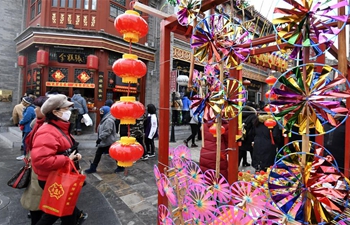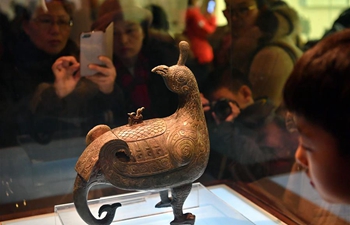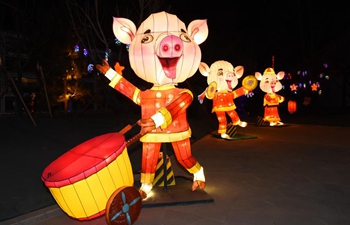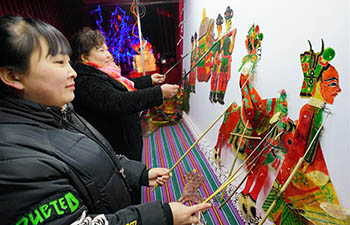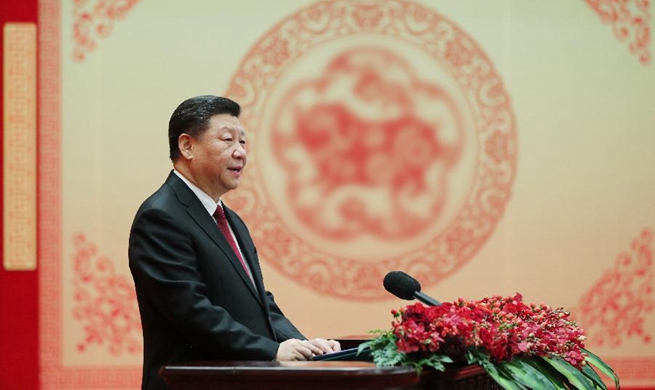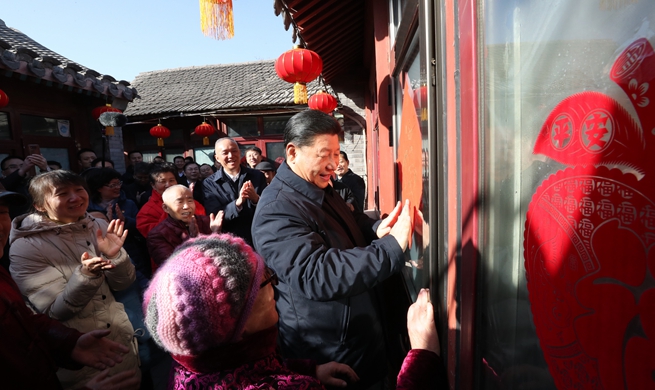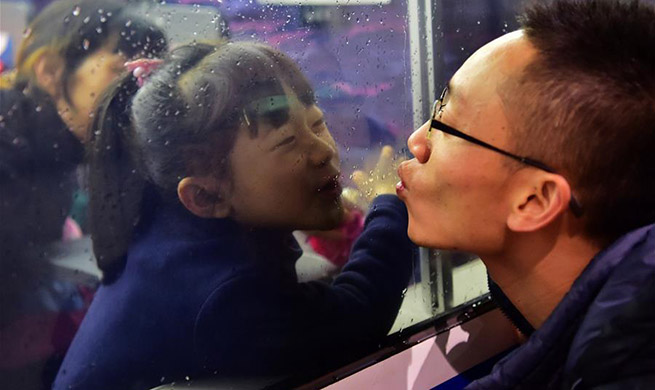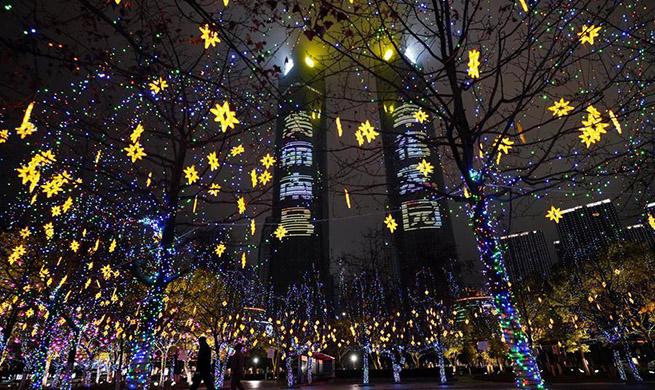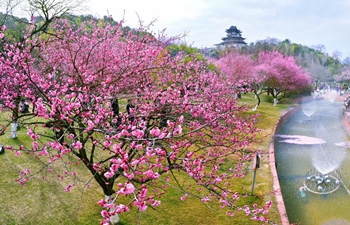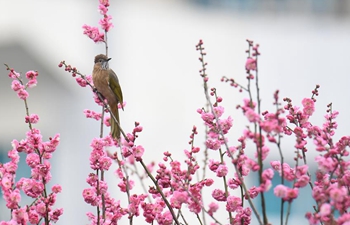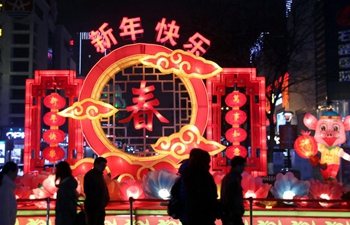by Julia Pierrepont III, Gao Shan
LOS ANGELES, Feb. 9 (Xinhua) -- A dynamo of creativity and a young rising star in the world of classical music, Du Yun presented her latest composition Wednesday and Thursday evenings at the LA Philharmonic's Chinese New Year's celebration.
Her latest work, "Thirst," is the third piece in her "Future Tradition" initiative and was commissioned by the Los Angeles Philharmonic Association, as part of its centennial celebration, to be the centerpiece of LA Phil's Chinese New Year concert.
"I want to showcase the diversity of Chinese culture to the world through music," Pulitzer Prize-winning composer and 2019 Grammy Awards nominee, Du Yun, told Xinhua in an exclusive interview Wednesday.
Born in Shanghai, Du Yun has won some of the most prestigious music awards in the world, including the 2017 Pulitzer Prize for Musical Composition and the 2018 Guggenheim Award. She is the first ever Asian female composer to win the Pulitzer Prize with her opera "Angel's Bone." She recently became the first female of color to be nominated for the Grammy Award for Best Contemporary Classical Composition, with her piece "Air Glow."
The 61st Grammy Awards will be held at the Staples Center in Los Angeles Sunday night.
As a Chinese composer, Du Yun hopes to touch American audiences by combining what she feels is quintessentially Chinese traditional culture with a more contemporary compositional style.
As such, "Thirst" takes inspirations from Xinchang Diaoqiang Opera, part of China's National Intangible Cultural Heritage. Du Yun first visited Xinchang in southern Zhejiang Province in 2017. There she became intrigued by the unique style of Xinchang Diaoqiang and its differences from the more well known forms of Yue Opera.
"At the end of summer 2017, I brought a team of researchers, scholars and filmmakers with me to Xinchang," she said. "Xinchang Diaoqiang is one of the oldest styles and dates back to the Ming Dynasty (1368-1644 AD)."
Since then, Du Yun and her team have been researching some of China's regional operatic forms she wants to help preserve and introduce to international audiences.
Du Yun told Xinhua, "Besides the more well known Beijing Opera and Kunqu Opera, there are over 300 regional opera styles in China, each with their local cultural characteristics."
Her LA Philharmonic world premiere marks the first time Xinchang Diaoqiang Opera is heard by an international audience.
"Chinese music may be fresh to audiences in the Western world, but this is not enough. It should be able to touch and inspire them," Du Yun noted.
Her new piece was rousing, intense, even discordant at times, as it's musical form echoed its own ambitious libretto: "all things about life and death ..."
"As a creator, I often wonder about our projected role in our society and furthermore, our gender roles presented in the literature and theatrical works. So I experimented with giving (the character) back her woman identity in the end," said Du Yun. "In today's world, our gender becomes more fluid and laden with complex layers."
Du Yun is interested in making new works that integrate traditional Chinese operatic forms into a new narrative framework that explores the concepts of identity and gender in diverse musical traditions.
"Based on the traditional text, I rewrote the lyrics to reflect my thoughts. The lyrics are about a sense of despair, and finding one's own identity," she added.
An alumna of Shanghai Conservatory of Music, Oberlin College and Harvard University, where she obtained her PhD, Du Yun is currently on the composition faculty at the Peabody Institute of Johns Hopkins University. She is also a distinguished visiting professor at the Shanghai Conservatory of Music.
Du Yun said earning a Grammy nomination has been a great honor.
"This is recognition of Chinese musicians by the U.S. music industry," she said. "Whether or not I win the award, it's already an achievement for me and Chinese musicians in the United States."




